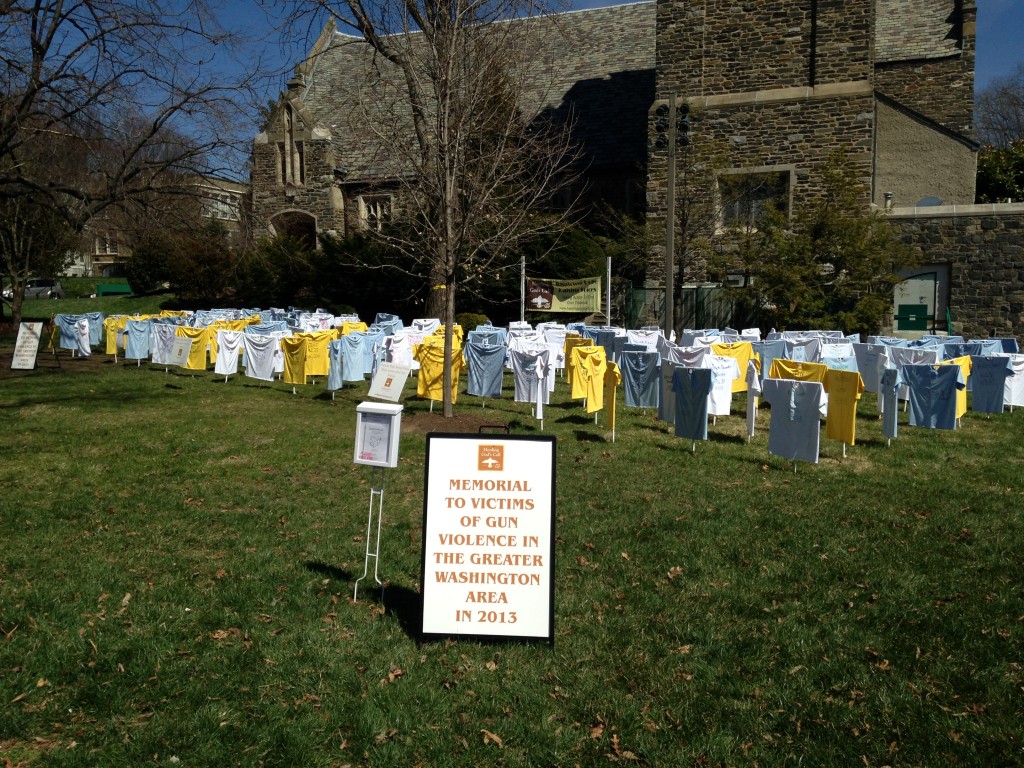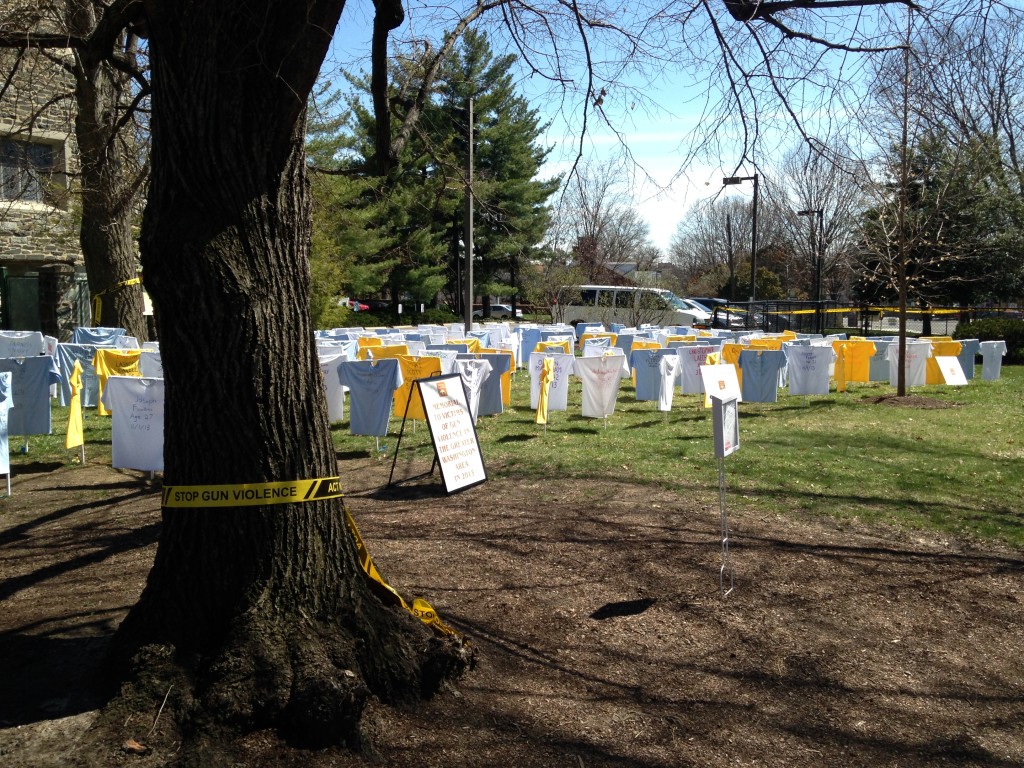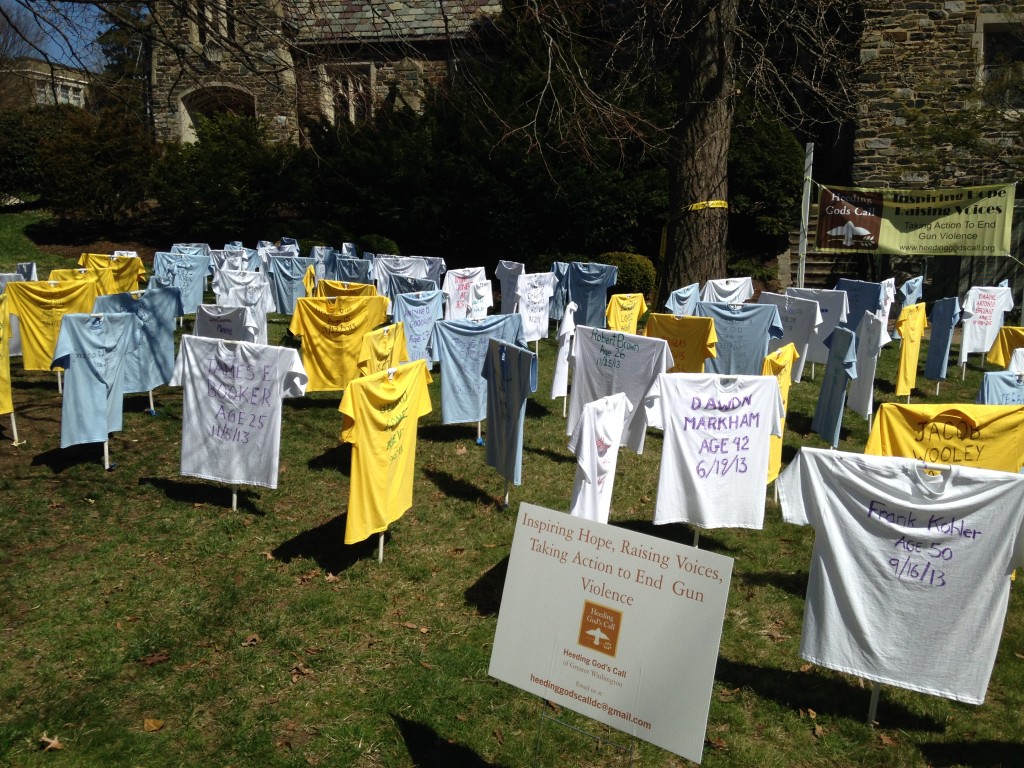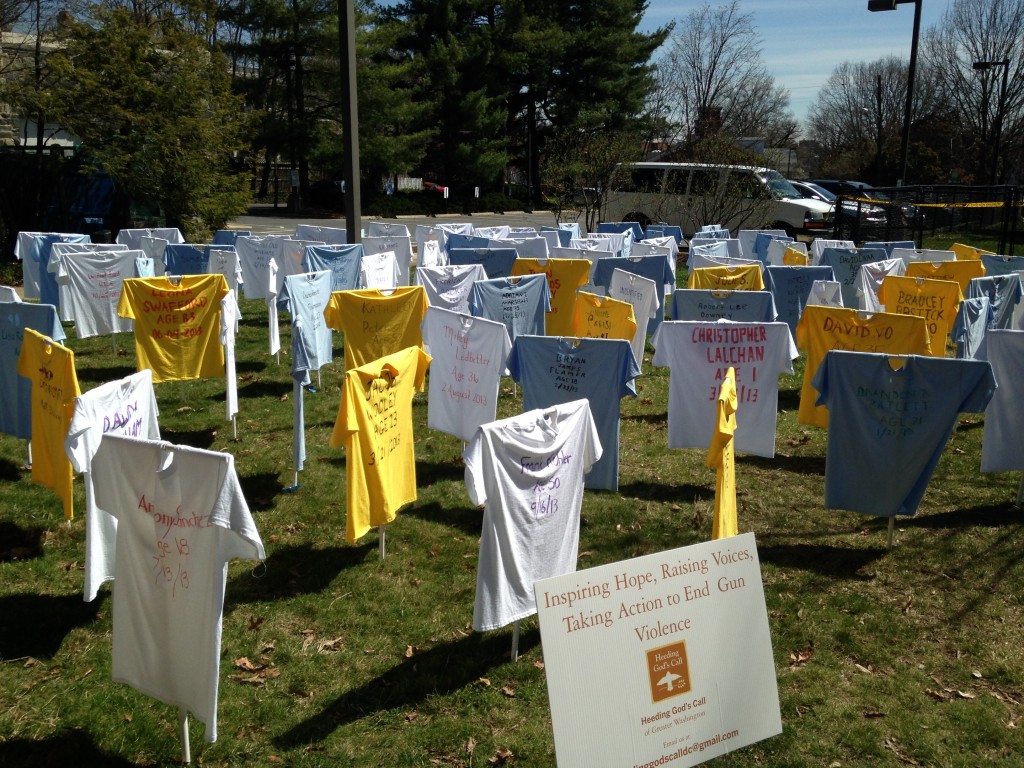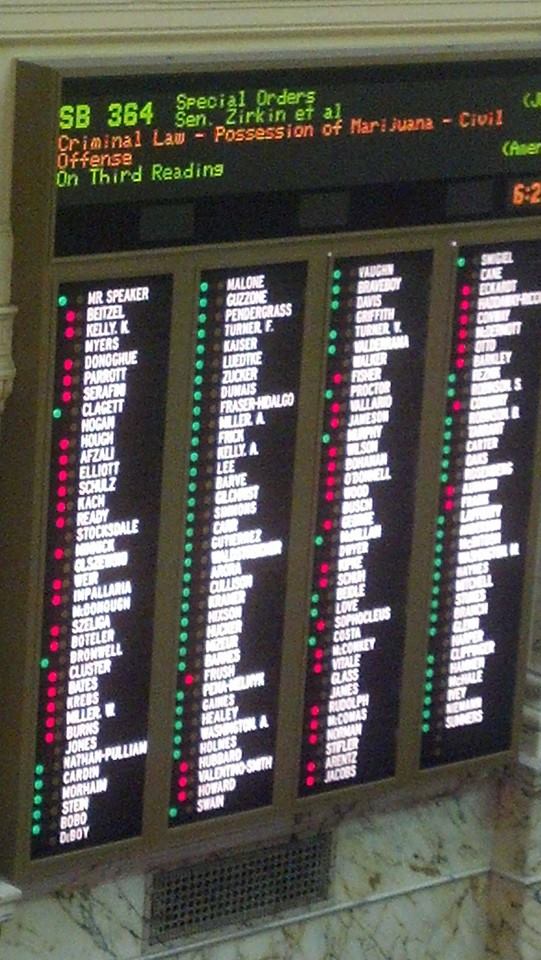MSNBC interviews Del. Bill Frick (D-16, Montgomery) on the political battle over keeping House of Cards in Maryland.
All posts by David Lublin
Voting Rights and Redistricting
Many people know that the Voting Rights Act can require the creation of majority-minority districts to protect minority representation. But the actual demands of the Act are often misunderstood.
The Supreme Court outlined the basics of when states must create districts designed to advance minority opportunity in a 1986 case called Thornburg v. Gingles. The case outlined a three-prong test that plaintiffs must meet in order to win a case arguing for the creation of a new majority-minority district.
Specifically, the minority group must prove that (1) it is sufficiently large and geographically compact to constitute a majority in a single-member district; (2) it is politically cohesive; and (3) racial-bloc voting usually defeats the minority’s preferred candidate.
I think of the first prong as the “is there a solution?” prong. Courts generally are not in the business of taking cases where they cannot offer relief. So if it is not possible to create a geographically compact single-member district with a group majority, don’t bother.
Of course, this still leaves room open for interpretation. For example, how compact must a district be to be deemed “geographically compact?” In more recent cases, courts have inveighed against minority districts with bizarre boundaries drawn for racial reasons–even as the Court has deemed it acceptable to gerrymander for partisan reasons.
This prong is one reason why there has been little litigation to create Asian-American majority districts. It’s just not possible to draw these districts in most areas of the country just as it would likely be very difficult at best to create one anywhere in Maryland.
The second prong requires that the minority group tends to vote together. Obviously, 100% cohesion never actually occurs and is not needed to meet this requirement. Moreover, the level of cohesion can still vary across races.
But the basic idea is that you cannot draw a district designed to protect the interests of minority if the minority is not cohesive. For example, how would one advantage the interests of a group that splits its votes evenly between Democrats and Republicans?
The third prong is often the most critical. If the first prong focuses on the potential for a solution, this prong assesses whether there is a problem. Voting must be racially polarized–that is, the minority and majority groups must regularly, though not always, support different candidates.
Moreover, racial-bloc voting must be sufficiently great to defeat the minority’s preferred candidate. After all, if a black candidate in a 40% black district receives 85% of the black vote and 35% of the white vote, the black candidate will still win with 55%.
If the minority candidate can win without drawing a district with a majority of group members, the Court did not really see a problem. Why should courts intervene to aid minority candidates if they have a good shot even without their help?
So the racial-bloc voting has to be sufficient to defeat the minority’s preferred candidate. For example, in the same district, if the black candidates rarely received more than 10% of the white vote, they would usually lose and meet the requirement.
In cases in which minorities can win with reasonable frequency even if they do not constitute a majority, courts are more reluctant to create districts. Del. Ana Sol Gutiérrez has argued for creating a subdistrict in District 18 to elect a Latino candidate. But her repeated election from a district without a Latino majority would provide evidence for the other side in a court case.
Note that I refer to the minority’s preferred candidate. The point is the candidate preferred by the minority group regardless of the race of the candidate. So white candidates who receive a majority of the black vote running against a black candidate are still minority-preferred candidates–or candidates of choice in the argot. Still, results from elections with candidates of the same race as the group at issue are considered especially valuable in assessing racial polarization in voting rights cases.
One also has to be careful not to lump minority groups together willy-nilly. Courts do not just combine African Americans, Latinos, and Asian Americans into a single category. On the contrary, one would need to prove that such groups consistently vote together to begin to make such a case. And they often don’t.
If you’d like to know more, you can buy a copy of my book, The Paradox of Representation: Racial Gerrymandering and Minority Interests in Congress, (the perfect Easter or Passover gift) or look online at Google Scholar or Research Gate for my articles in various political science and law journals.
Don’t Pick Up the Phone
The General Assembly is out of session. There are now around ten weeks between now and the primary. So it’s that dangerous time when the thoughts of legislative candidates turn to their campaign accounts. And how they wish there was more in them.
Whatever you do, don’t pick up the phone unless you want to open your wallet, volunteer to give time, or just feel like having a nice chat with a stranger. No amount is too small. Don’t have $100. How about $50. Or even $25 so we can broaden our contribution base? Even $10 can help.
If you’re really wealthy, you can’t even use the excuse of having maxed out anymore because the Supreme Court did away with the limits on the total amount anyone can donate with the McCutcheon decision, though the limits on the amount you can donate to a single candidate remain in place.
Lobbyists really hate the McCutcheon decision as they know they’ll be dunned more than ever. While the wealthy can at least just say no, it’s harder for lobbyists who know that they may well be knocking on these same people’s door and at least want a hearing.
Of course, the not so big secret of campaign finance is that most candidates hate asking for money even more than other people hate giving it. They didn’t seek office to become fundraisers. Oh sure, some are good at it and thrive on it. But most would rather do just about anything else.
Duchy Fundraiser Attacks Sierra Club
Developer Jim Soltesz is decrying Roger Berliner’s embrace of the “vicious” Sierra Club’s endorsement as part of his effort to raise money for Duchy Trachtenberg. (h/t Washington Post). The email is practically an ad for Roger Berliner. Truly unhelpful in this very pro-environment district.
Duchy needs to repudiate this email and cancel this fundraiser if she wants to salvage the situation. I look forward to hearing her response to this attack.
Good News for Sexual Assault Survivors
From Del. Ariana Kelly:
This weekend the Maryland Senate passed my legislation (HB 963) to establish process for treating sexual assault survivors in EVERY hospital in Maryland.
What’s that you say, every hospital in Maryland doesn’t currently treat victims of sexual assault?
That’s true! This is an issue I’ve been working on since my days as Executive Director at NARAL Pro Choice Maryland. Only one hospital in every county is designated to provide forensic medical exams for sexual assault survivors.
In Montgomery County, under the current law only Shady Grove Hospital is fully equipped to handle victims of sexual assault. If you are raped and show up at Holy Cross, Suburban, Montgomery General, or Washington Adventist Hospital, you may not be able to get access to a sexual assault forensic exam. These exams are vital pieces of evidence if victims wish to pursue charges against their assailant and without these exams, rapists are allowed to walk free.
Showing up in the Emergency Room at these other hospitals, you might be told to get back in your car and drive yourself to Shady Grove Hospital. Or in instances of trauma, you could be taken to Suburban Hospital and then transferred to Shady Grove, all the while being advised not to bathe or use the bathroom so as to not tamper with the evidence from the rape.
Thanks to this legislation which passed both houses unanimously every hospital will now have to establish a protocol for treating victims of sexual assault.
Memorial to Gun Violence Victims
Live Tweeting Sine Die
@JohnSGallagher is live tweeting the sine die legislative session to @theseventhstate on Twitter. Check it out. You don’t want to miss the photo of Del. Nat Oaks in seersucker.
How Marijuana Decriminalization Passed the House
As the session drew to a close, the prospects for marijuana decriminalization looked grim despite its passage by an overwhelming majority in the Senate. Judiciary Committee Chairman Joe Vallario had once again put the kibosh on the bill.
At Vallario’s behest, the Committee amended the bill to replace it with one that would create a task force to study the issue. As we say in Montgomery County, paralysis by analysis. So how did a bill decriminalizing the possession of small amounts of marijuana end up passing the House on Saturday?
First, Vallario made a critical mistake by passing any bill out of Committee at all. Though probably necessary to mollify committee members, it also provided decriminalization supporters a key opportunity to amend the bill back to its original intent.
Various advocates, including Dan Furmansky who has been lobbying on this issue, began to press legislators to put up a fight on the floor. Del. Eric Luedtke agreed to sponsor an amendment to overturn the Committee’s decision and restore the original intent of the bill.
Luedtke was a good choice. Del. Heather Mizeur has been active on this issue but her name on the amendment would have immediately doomed it due to gubernatorial politics in this election year. Ditto for Del. Jolene Ivey. Their willingness to step back and allow others to take the lead aided the effort greatly.
Bill advocates quickly began talking with Del. Keiffer Mitchell and Del. Nat Oaks who reached out to the Black Caucus. As this was going on, time passed and decriminalization proponents made the call not to offer their amendment on second reading, as it would have received only a couple dozen votes and died.
Economic Matters Committee Chairman Dereck Davis gave the effort a major boost when he advocated fighting for decriminalization on the floor to the Black Caucus and made a statement to that end in the media. Support from a respected member of leadership helped propel the amendment forward.
Key legislative advocates, such as Dels. Luedtke, Oaks, Mizeur, Ivey, David Fraser-Hidalgo, and Alonzo Washington, organized a whip operation supported by various advocacy groups like the ACLU. Republican Del. Mike Smigiel agreed to work on libertarian members of his party.
By the time they had close to 40 supporters, Vallario dug in his heals and made clear that he expected members of his committee to stick with him. But the House leadership forced him to ask the House to special order the bill, which it did, so he could negotiate with decriminalization advocates.
Del. Kieffer Mitchell agreed to sponsor the amendment, which was another good move to move matters forward, as attaching this junior but prominent African-American legislator’s name helped to emphasize the racial disparities associated with current enforcement of criminal penalties for marijuana possession.
By the end of the day on Friday, it became clear that Speaker Busch had released senior leadership to vote how they wished (i.e. to vote against Vallario), as Dels. Maggie McIntosh, Sheila Hixson along with Dereck Davis expressed their support. Like Davis, McIntosh proved especially helpful in gaining new supporters. The whipping operation was also highly visible on the floor.
Some Judiciary Committee members, like Dels. Curt Anderson and Luiz Simmons, began to rebel against sticking with Vallario. However, he still had support from others, such as Vice Chair Kathleen Dumais who has genuine reservations and Del. Jeff Waldstreicher who did not want to harm his excellent relationship with his committee chairman.
In the midst of all this, Vallario finally sued for peace. Good timing, as amendment supporters had received 66 firm commitments of support and he was about to get rolled publicly. Vallario and Dumais met with Bobby Zirkin, the Senate sponsor who had also been very active, to draft a new amendment. Mitchell and Luedtke were brought in later that night to help organize the plan for the floor.
Judiciary met on Saturday morning to ax the task force plan and recommend favorably the original bill as modified in small ways. Mitchell withdrew his amendment and matters proceeded according to regular order. As the bill was now a committee bill, it became critical for it to pass for the House leadership, particularly after all the contretemps surrounding it. And it did.
A few quick thoughts on the outcome. First, it showed that junior backbench members both can and will exercise influence on critical issues when committee chairs flout the will of the bulk of the Democratic Caucus. This was already a moderate, compromise bill. Remember it accomplished mild decriminalization–not full-scale legalization. Vallario’s repeated noes were not acceptable.
Second, Speaker Michael Busch did not have Vallario’s back. The Judiciary Committee Chair has simply opposed his Caucus too often on priority issues. Leaders don’t last long in power if they don’t listen to their members–something Speaker Busch and Senate President Miller understand far better than many realize.
Updated Marijuana Vote Totals
My vote totals from yesterday were based on the above photo of the vote board since the House doesn’t publish the tally immediately. Here is the final vote total. This one is courtesy of Del. Bill Frick’s Facebook page but he had the official tally. The changes are all from people shown as previously not voting to casting votes. As a result, there was an increase of one in the number of Democrats voting no with Del. Mary-Dulany James being the newbie.
The House of Delegates voted 78-55 to pass the marijuana decriminalization bill. Most prominently, Judiciary Chairman Joe Vallario defied House tradition and voted against a bill now supported by his own committee.
A total of 17 Democrats voted red. Del. Charles Barkley (D-39) was the only Montgomery delegate who voted no. Most of the Democrats who voted no are from more conservative jurisdictions in the State with a smattering of African Americans
Democrats who voted NAY (18): K. Kelly (Allegany), Donoghue (Washington), Burns (Baltimore County), Frush (Prince George’s & Anne Arundel), Hubbard (Prince George’s), Valentino-Smith (Prince George’s), Howard (Prince George’s), Vallario (Calvert & Prince George’s), Jameson (Charles), Wilson (Charles), Bohanan (St. Mary’s), Wood (Charles & St. Mary’s), Sophocleus (Anne Arundel), Rudolph (Cecil), Conway (Wicomico & Worcester), Barkley (Montgomery), Conaway (Baltimore City), and James (Harford & Cecil).
Republicans who voted YEA (2): Costa (Anne Arundel), and Smigiel (Caroline, Cecil, Kent & Queen Anne’s).
Democrats who didn’t vote (2): Walker, Harper.
Republicans who didn’t vote (5): Myers, Stocksdale, McDonough, Dwyer, Stifler.
Dwyer’s Quiet Weekend and Simonaire Challenge
Now I know why Del. Don Dwyer didn’t vote on marijuana decriminalization. He’s unavailable on weekends:
Del. Don Dwyer Jr., spends weekends in the county jail in Glen Burnie, serving time for convictions last year on charges of drunken driving and drunken boating. His absence — he checks into jail on Friday evenings and is released on Sunday nights — means the Republican can’t vote on matters that are being decided on the final weekend of the 2014 General Assembly session.
He also has lost his committee assignments, which renders him even more ineffective than usual. Dwyer was not expelled because his offenses were misdemeanors unrelated to his work in the House. Besides his conviction after having caused injury to seven people in the boat accident, Dwyer is probably best known for his strident social conservatism and opposition to LGBT rights, as he believes that gays and lesbians are a “threat to children.”
He has filed for reelection from District 31B. House Minority Leader Nic Kipke is running as well in the two-seat district, as are six other Republicans. One of them is 24-year old Meagan Simonaire:
Simonaire, the daughter of state Sen. Bryan Simonaire, is a cosmetologist with a degree from Bob Jones University in South Carolina. She said she grew up in a political family and has a history of political activism.
If elected, the two Simonaires would be the only father-daughter Senate-House duo.


